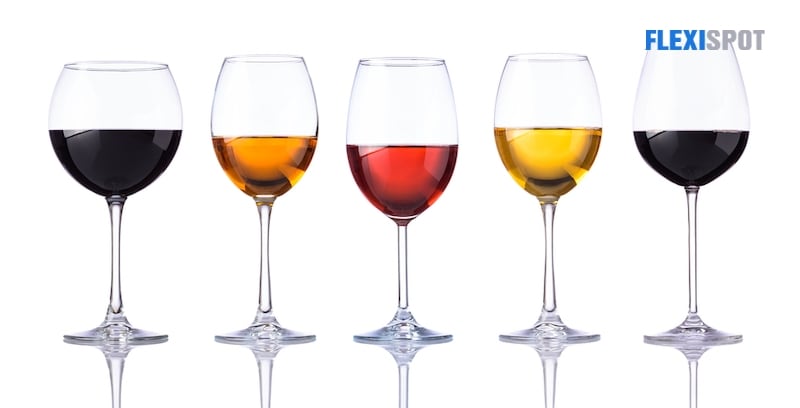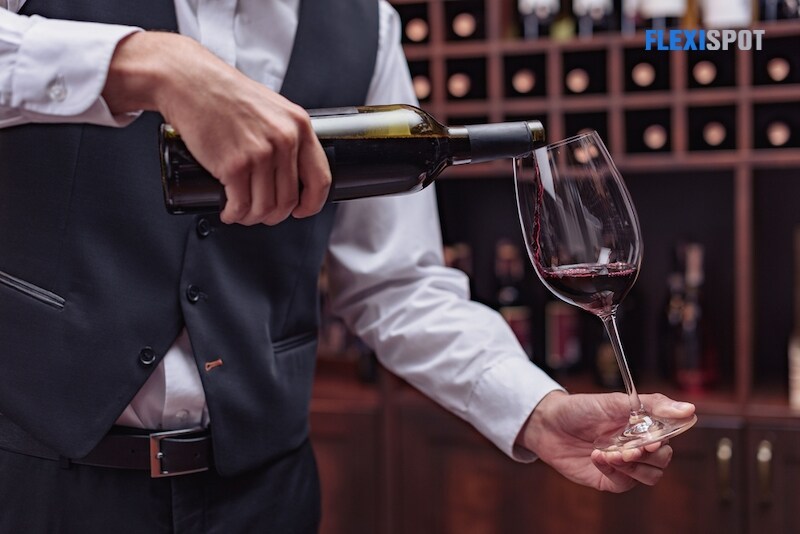There are fine things in life that have to be done the right way in order to, as they say, truly experience it. It may be how you come dressed to an opera theater or how you eat your steak in a Michelin-starred restaurant. It may also be how you pick and, yes, drink your red wine.
Red wine is a top choice for most diners whether they’re eating tagliolini pasta with lobster and truffles or slicing through a Kobe rib eye cheesesteak. People meet just to get their red wine fix and have hors d'oeuvres on the side. Meat and cheese pairings are not uncommon when enjoying a glass of red wine and the week’s latest gossip in one’s social circle.
Aside from setting the mood, red wine must be so famous in dates, parties, events, and get-togethers because of its many blends, varieties, and flavour profiles. It can be recreated many times, something that humans have been doing since time immemorial.
For first-time drinkers, it’s understandable that drinking red wine with a frequent drinker may be a bit intimidating. You may sip it for the first time with shaky hands, especially if your date is all eyes on you or your friends are poking fun with the way you drink. But fret not, you can always learn how to experience red wine at its finest.

First things first, you have to look closely at the bottle of red wine you’ll be drinking. It’s a different story in a vineyard because you already know where the grapes came from but if you’re buying at your local store for your dinner date tonight or at a restaurant with friends, you can only make the right choice if you know where the red wine is sourced from in the first place.
A basic rule of thumb is to look at the climate of the country that it is from. On one hand, if it's from a country with cold weather including Chile, northern Italy, Germany, France, and even the Pacific Northwest regions of the United States, this wine would most likely be lighter-bodied. On the other hand, warm places such as California, Argentina, and southern France may produce full-bodied wines that have a more intense taste. Through the years, however, winemakers have tried to experiment more and create microclimates or soil variations to alter the taste of grapes grown in their area. This will of course change the taste of the red wine in your hands. When in doubt, you may always pop out your phone and google quick information once you’ve looked at the label in the bottle.

After picking the perfect wine bottle for you, the next step is to choose the appropriate glassware. This is often taken for granted but something very important in the world of red wine tasting. According to Winecooler Direct, red wine is generally best served with large, rounded bowls. But to be specific, it varies depending on the flavour profile of the wine you’ll be drinking. A lighter-bodied one will taste better in a shorter glass where your nose could sniff it easily. A stronger wine with a more intense flavour, on the other hand, may taste better in a taller glass so that the aroma can travel to more room before it gets to your nose.
For your red wine to taste at its finest, it has to be paired with food that suits its flavour profile best. Light red wines with a soft taste will be well served with poultry and pasta while the strong and intense red wines could be paired with beef or curated meat. If you’re thinking about seafood, it’s better with white wine but if you really want red wine for the night, pair it with a light type.
Be careful in adding vegetables such as asparagus, brussel sprouts, and green beans because it may be tricky to pick a red wine that goes with these greens.
After you pick your ideal wine, the perfect glassware, and suitable food pairings, it’s now time to try it out. Here are the three steps to follow:

1. Pour and swirl the red wine into your glass gently and mindfully. When you pour, your mind shouldn’t be wandering because this is your chance to assess the viscosity and thickness of your wine, observe if it coats the side of your glass, and ask yourself what your expectations of how it will taste like are. The next step is to carefully swirl the red wine in the glass. This is your chance again to observe the red wine and ask yourself: is it nearly opaque or did it coat the sides of the glass? If the former, it usually means the wine came from a warm area and did not take a long time to age. If the latter, it might indicate the level of sweetness and amount of alcohol in the wine.

2. Take a big whiff of the red wine’s aroma. You have to put your nose as close as possible to the rim of the glass so that you’ll have a clear smell of what you’ll be drinking. Close your eyes to be more focused on identifying what you are smelling. Aside from the smell of the grapes, the main scent would usually be another fruit such as blackberries, currants, or strawberries. Does the smell tell you it’s sweet, intense, or possibly tart? The next scent you have to try to identify is the smell of the flavours created during the process of making it. You may get the aroma of vanilla, mint, rose, or pepper. The third is to get a sniff of the closing note that will reflect how old the wine is. Common scents would be leather, coffee, or smoke.

3. Taste it. We’re finally down to the tasting part but not the whole glass just yet. Take a small sip and swallow it immediately. Let it sit a bit on your tongue as you pay attention to the aftertaste and how long it’ll be before it’s gone. A sommelier may even recommend you to spit the first sip out. It will allow you to analyze the other red wines available without getting drunk.